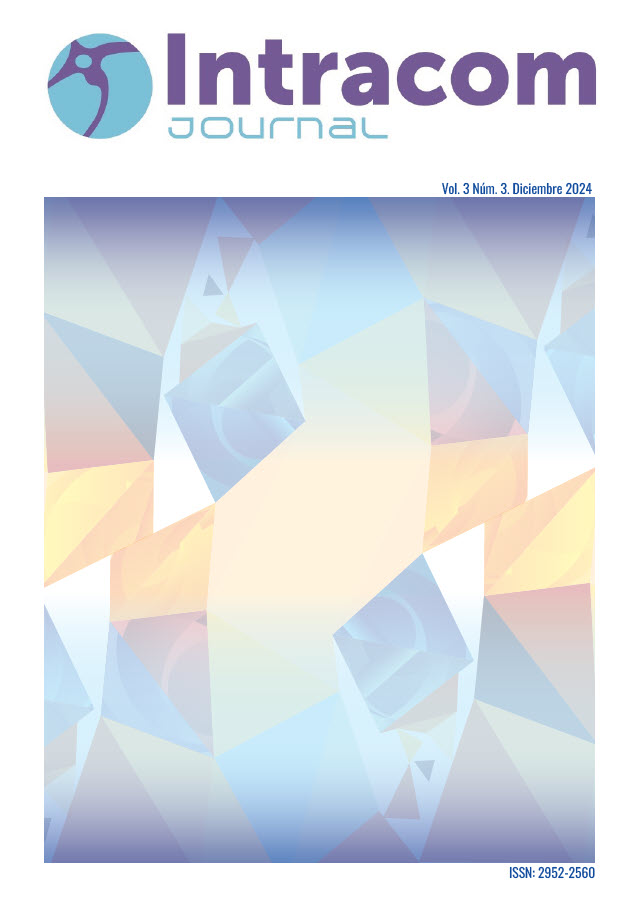Transforming learning Sapient Sisters project and l'albero delle donne.
DOI:
https://doi.org/10.61283/knswcb22Keywords:
participative methodologies, collaborative learning, education, co-creation of content, knowledge transferAbstract
In a changing educational environment, participatory methodologies are gaining relevance as an alternative to traditional teaching approaches. These methodologies allow for greater involvement of participants in their own learning process, promoting deeper and more meaningful knowledge. This article explores how these methodologies are applied in cultural and educational projects, with a focus on the case of the Sapient Sisters project and l'albero del donne. The research examines the effectiveness of participatory tools such as project-based learning, content co-creation and collective storytelling. Through workshops and collaborative activities, it is observed that these methodologies not only facilitate greater retention and understanding of content, but also foster a critical and cultural appropriation of knowledge by participants. The results suggest that participatory approaches can significantly improve teaching processes in different contexts, offering inclusive and adaptive alternatives in today's education.
Downloads
References
Anderson, J. Q., & Rainie, L. (2012). The future of higher education. Pew Research Center.
Andrews, M., Hull, G., & Donahue, T. (2009). Storytelling in the digital world. Teachers College Press.
Apple, M. W., & Beane, J. A. (2007). Democratic schools: Lessons in powerful education. Heinemann.
Bell, S. (2010). Project-based learning for the 21st century: Skills for the future. The Clearing House: A Journal of Educational Strategies, Issues and Ideas, 83(2), 39-43.
Blumenfeld, P. C., Soloway, E., Marx, R. W., Krajcik, J. S., Guzdial, M., & Palincsar, A. (1991). Motivating project-based learning: Sustaining the doing, supporting the learning. Educational Psychologist, 26(3-4), 369-398.
Boss, S., & Larmer, J. (2018). Project-based teaching: How to create rigorous and engaging learning experiences. ASCD.
Bovill, C., Cook-Sather, A., & Felten, P. (2011). Students as co-creators of teaching approaches, course design, and curricula: Implications for academic developers. International Journal for Academic Development, 16(2), 133-145.
Bovill, C., & Woolmer, C. (2019). How conceptualisations of curriculum in higher education influence student-staff co-creation in and of the curriculum. Higher Education, 78(3), 407-422.
Bruner, J. (1990). Acts of meaning. Harvard University Press.
Castells, M. (2010). The rise of the network society. Wiley-Blackwell.
Coll, C., & Monereo, C. (2008). Psicología de la educación virtual: Aprender y enseñar con las tecnologías de la información y la comunicación. Ediciones Morata.
Cornwall, A. (2008). Unpacking “Participation”: Models, meanings and practices. Community Development Journal, 43(3), 269-283.
Dabbagh, N., & Kitsantas, A. (2012). Personal learning environments, social media, and self-regulated learning: A natural formula for connecting formal and informal learning. The Internet and Higher Education, 15(1), 3-8.
Dewey, J. (1938). Experience and education. Macmillan.
Fidalgo-Blanco, Á., Sein-Echaluce, M., García-Peñalvo, F., & Conde, M. Á. (2017). Using co-creation to design course content: Designing learning spaces in the digital age. Journal of Educational Technology & Society, 20(1), 103-115.
Freire, P. (1970). Pedagogy of the oppressed. Continuum.
Giroux, H. A. (1988). Teachers as intellectuals: Toward a critical pedagogy of learning. Bergin & Garvey.
Hooks, b. (1994). Teaching to transgress: Education as the practice of freedom. Routledge.
Jaramillo, J. (2019). Metodologías participativas en la educación: Una revisión teórica. Revista de Educación, 48(3), 245-263.
Johnson, D. W., Johnson, R. T., & Smith, K. A. (2007). The state of cooperative learning in postsecondary and professional settings. Educational Psychology Review, 19(1), 15-29.
Kabeer, N. (1999). Resources, agency, achievements: Reflections on the measurement of women's empowerment. Development and Change, 30(3), 435-464.
Kolb, D. A. (1984). Experiential learning: Experience as the source of learning and development. Prentice-Hall.
Kvale, S. (2007). Doing interviews. Sage.
Lerner, G. (1993). The creation of feminist consciousness. Oxford University Press.
Mezirow, J. (1997). Transformative learning: Theory to practice. New Directions for Adult and Continuing Education, 1997(74), 5-12.
Novak, J. D., & Cañas, A. J. (2008). The theory underlying concept maps and how to construct and use them. Technical report, IHMC.
Ritzer, G., & Jurgenson, N. (2010). Production, consumption, prosumption: The nature of capitalism in the age of the digital “prosumer”. Journal of Consumer Culture, 10(1), 13-36.
Robin, B. R. (2008). Digital storytelling: A powerful technology tool for the 21st-century classroom. Theory into Practice, 47(3), 220-228.
Rowbotham, S. (2014). Women, resistance and revolution: A history of women and revolution in the modern world. Verso.
Scott, J. W. (1996). Gender and the politics of history. Columbia University Press.
Spradley, J. P. (1980). Participant observation. Holt, Rinehart and Winston.
Thomas, J. W. (2000). A review of research on project-based learning. The Autodesk Foundation.
Toffler, A. (1980). The third wave. William Morrow.
Vygotsky, L. S. (1978). Mind in society: The development of higher psychological processes. Harvard University Press.
Wilkinson, S. (1998). Focus groups in feminist research: Power, interaction, and the co-construction of meaning. Women’s Studies International Forum, 21(1), 111-125.
Downloads
Published
Issue
Section
License
Copyright (c) 2024 Paloma Rodera Martínez (Autor/a)

This work is licensed under a Creative Commons Attribution-NonCommercial-ShareAlike 4.0 International License.
Política de acceso abierto
Se permite el acceso libre y abierto de cualquier interesado a todos los contenidos de los números de la revista, sin costo alguno, pudiendo imprimir y trasladar todos los artículos, con la única condición de precisar la fuente y la autoría.
La revista: a) no cobra a las autorías costes por el procesamiento de los artículos ni por el envío de los mismos, b) mantiene el copyright para los autores sin restricciones, c) facilita a los autores conservar sus derechos de publicación sin limitaciones.
La Revista Internacional de Investigación y Transferencia en Comunicación y Ciencias Sociales (INTRACOM) es una obra original gestionada por Activa 19 Comunicaciones. Todos los artículos incluidos en la Revista son obra original de sus respectivas autorías. Esta Revista se ofrece libremente a la comunidad científica y académica sin coste alguno y libera los contenidos de acuerdo a la licencia "Reconocimiento-NoComercial-CompartirIgual 4.0 CC BY-NC-SA" del proyecto Creative Commons dispuesta en la siguiente url: https://creativecommons.org/licenses/by-nc-sa/4.0/legalcode







